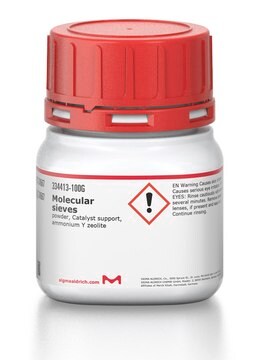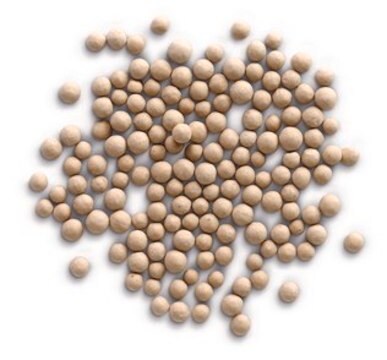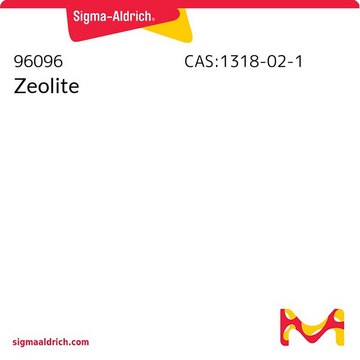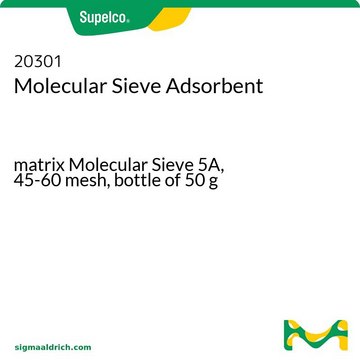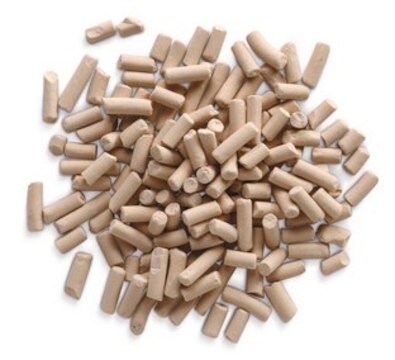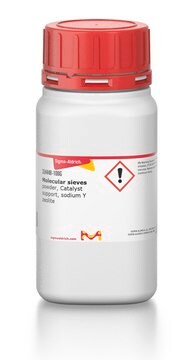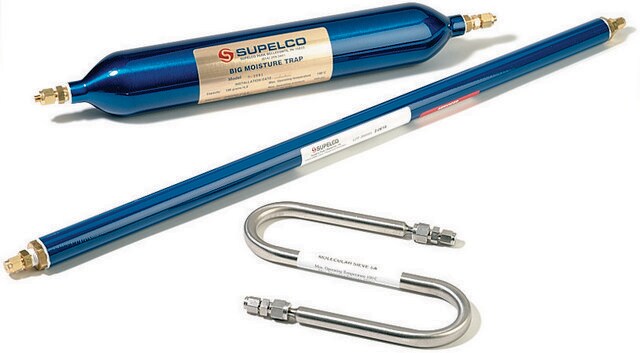20307
Molecular Sieve, 13Å
100-120 mesh, bottle of 50 g
Sign Into View Organizational & Contract Pricing
All Photos(1)
About This Item
UNSPSC Code:
23201100
eCl@ss:
32110204
Recommended Products
product name
Molecular Sieve Adsorbent, matrix Molecular Sieve 13X, 100-120 mesh, bottle of 50 g
form
solid
Quality Level
packaging
bottle of 50 g
matrix
Molecular Sieve 13X
particle size
100-120 mesh
pore size
13 Å
density
~0.65 g/mL
Looking for similar products? Visit Product Comparison Guide
Related Categories
General description
Molecular sieves are synthetically produced zeolites (naturally occurring aluminosilicate minerals), and are characterized by pores and internal cavities of extremely uniform dimensions. These crystalline materials have three-dimensional structures based on silicon oxide (SiO4) and aluminum oxide (AlO4) polyhedra. The polyhedra are linked by their corners to produce an open structure with internal cavities in which molecules can be trapped. These materials are engineered so that access to the internal cavities is through specific and uniform sized pores.
For more information about any of our adsorbents, please visit sigma-aldrich.com/adsorbents
For more information about any of our adsorbents, please visit sigma-aldrich.com/adsorbents
Storage Class Code
11 - Combustible Solids
WGK
WGK 3
Flash Point(F)
Not applicable
Flash Point(C)
Not applicable
Personal Protective Equipment
dust mask type N95 (US), Eyeshields, Gloves
Choose from one of the most recent versions:
Certificates of Analysis (COA)
Lot/Batch Number
Sorry, we don't have COAs for this product available online at this time.
If you need assistance, please contact Customer Support.
Already Own This Product?
Find documentation for the products that you have recently purchased in the Document Library.
Customers Also Viewed
Columns for Gas Chromatography: Performance and Selection.
Barry EF and Grob RL.
Science, 28-28 (2007)
M Schweigkofler et al.
Journal of hazardous materials, 83(3), 183-196 (2001-05-12)
Methods for the removal of gaseous silicon compounds in biogases are presented. In laboratory studies, various solid adsorption materials and liquid absorption solutions were evaluated for their siloxane elimination efficiencies. Among the liquid sorbents studied, concentrated nitric acid and sulfuric
Our team of scientists has experience in all areas of research including Life Science, Material Science, Chemical Synthesis, Chromatography, Analytical and many others.
Contact Technical Service